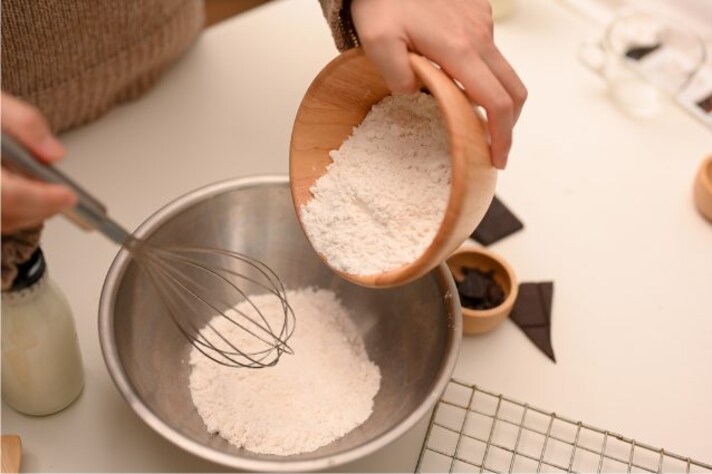
When it comes to baking biscuits, the stakes are surprisingly high. These seemingly simple treats can send even the most experienced bakers into a spiral of frustration. The crux of the problem often lies in the outcome: biscuits that turn out too hard, crumbly, chewy, or just plain unpalatable. A major culprit behind these baking blunders is the type of flour used, with hard wheat flour often being the misguided choice for many.
The Trouble with Hard Wheat Flour
Hard wheat flour, commonly known as bread flour, is prized for its high protein content, typically around 12% to 14%. This high protein level is excellent for developing gluten, which provides elasticity and strength in breads, allowing them to rise and maintain structure. However, this same property becomes a disadvantage when it comes to biscuits. The development of gluten in biscuit dough can lead to tough, chewy textures rather than the desired light and flaky consistency. When hard wheat flour is used in biscuits, the excessive gluten formation activates with the addition of moisture and manipulation (mixing). This results in biscuits that are more akin to a chewy bread roll rather than a tender, crumbly treat.

Furthermore, the density of hard wheat flour can weigh down the dough. Biscuits are meant to be airy and delicate, with layers that melt in your mouth. The robust gluten network formed by hard wheat flour traps more gas and creates a denser product, which contradicts the fundamental characteristics of what makes a biscuit delightful. Strong flour, another term for high-protein or hard wheat flour, is not recommended for baking biscuits due to its propensity for creating tough textures. While it's excellent for yeast-leavened breads where chewiness is desired, it's not suitable for biscuits where tenderness and flakiness are the goals.
The Best Flour for Biscuits
The quest for the perfect biscuit flour leads us away from hard wheat flour towards options better suited for tender pastries. The ideal choice is soft wheat flour, sometimes labeled as pastry flour or cake flour. Soft wheat flour has a lower protein content, usually between 8% and 10%, which limits the amount of gluten formed during mixing. This ensures that biscuits remain light and airy, with a soft texture that breaks apart easily. The reduced protein content aligns perfectly with the chemical leavening (baking powder or baking soda) commonly used in biscuit recipes, promoting a rise that is substantial yet maintains a tender crumb.
;Resize,width=767;)
